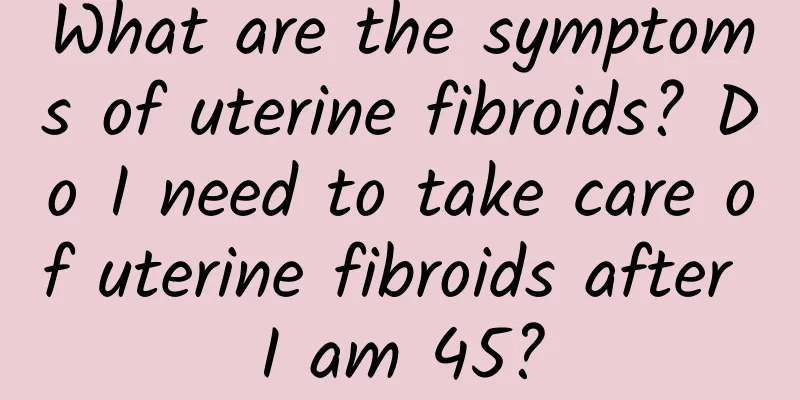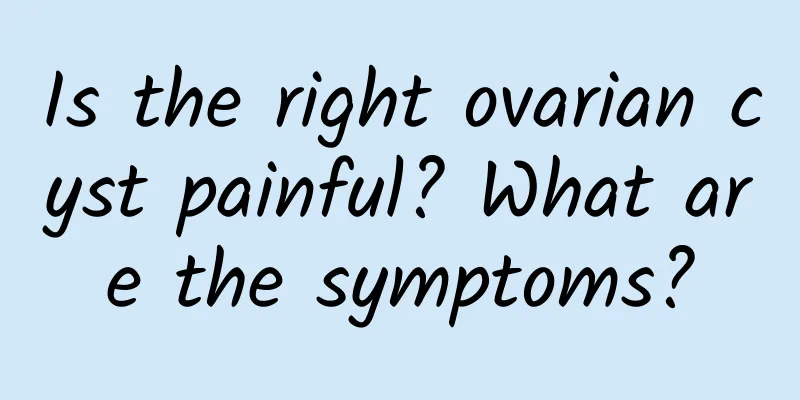Is there a cure for endometrial thickening?

|
Endometrial hyperplasia is a common female disease. The disease is mainly caused by ovarian hormone disorders due to various reasons. A large amount of estrogen causes continuous stimulation to the endometrium, which induces abnormal endometrial hyperplasia, namely endometrial hyperplasia. What are the treatments for endometrial thickening? There are usually two ways to treat endometrial thickening, namely surgical treatment and drug treatment. Drug treatment is mainly for patients with relatively mild symptoms. At the same time, traditional Chinese medicine can also be used for treatment, which has relatively few side effects. It is mainly used to regulate the menstrual cycle and help restore ovulation. The purpose of surgical treatment is to completely cure endometrial hyperplasia and prevent the lesion from developing into endometrial cancer. Doctors suggest that not every patient is suitable for surgical treatment. Some patients who have not responded to long-term drug treatment or have repeated attacks, those who are over 40 years old and have no fertility requirements, and those whose endometrial cancer is difficult to identify can use surgical treatment. However, the treatment of any disease cannot be one-size-fits-all, and appropriate measures should be taken according to the specific situation of each patient. Doctors point out that the following typical types of endometrial hyperplasia are common, and a combination of surgery and drugs is required for treatment. 1. For young patients. Irregular bleeding in young patients is mostly anovulatory functional uterine bleeding. Endometrial hyperplasia inhibits the normal discharge of eggs. Therefore, young women who find this disease should go to the hospital for basal body temperature testing. If it is confirmed to be monophasic anovulation, ovulation induction treatment can be used. 2. For patients in the menopausal transition period. Patients with endometrial hyperplasia in the menopausal transition period also have anovulatory functional uterine bleeding, and curettage can be used to stop bleeding. If symptoms such as infrequent menstruation, prolonged bleeding, and heavy bleeding occur after the operation, three cycles of progesterone treatment are required every two months, followed by follow-up observation. 3. For patients in the reproductive period. Most patients in the reproductive period can stop bleeding after a one-time curettage. If bleeding still occurs after surgery, hysteroscopy and B-ultrasound examination are required to rule out submucosal myoma or other organic lesions. If the clinical manifestations are anovulatory polycystic ovary syndrome, it should be treated as polycystic ovary syndrome. 4. For postmenopausal patients, estrogen replacement therapy alone can be used. If a curettage is required, the replacement therapy can be suspended or progesterone can be added after the operation. Endometrial hyperplasia is a reversible disease that can be cured if discovered in time and treated actively. However, it can also turn into cancer, so patients should be more vigilant. |
<<: Can severe endometrial thickening be cured?
>>: Can endometrial thickening be completely cured?
Recommend
Can the ketogenic diet help you lose weight and fight cancer? Nutrition experts say this!
In the past one or two years, we have often heard...
Women with cervical erosion should not blindly use medication
Cervical erosion is common in daily life, but mos...
Can eating durian relieve dysmenorrhea?
Eating durian cannot directly relieve dysmenorrhe...
Can I take fluconazole if my vaginitis relapses two days after I got the HPV 9-valent vaccine?
If vaginitis recurs two days after receiving the ...
How is miscarriage diagnosed in women?
With the advancement of medicine, the methods of ...
Causes of normal ovulation bleeding
Normal ovulation bleeding is generally caused by ...
Symptoms of pelvic inflammatory disease in women can cause lower abdominal distension
Experts say that the symptoms of pelvic inflammat...
Experts briefly analyze the precautions after ectopic pregnancy surgery
The harm of ectopic pregnancy surgery to female f...
Is ovarian cyst a serious disease?
The severity of ovarian cysts depends on the natu...
What to do with chronic cervicitis in women? Can chronic cervicitis in women be cured? Analysis of the treatment methods of cin1
The treatment of chronic cervicitis depends on th...
Mulberry and safflower wine for the treatment of amenorrhea due to blood deficiency
Amenorrhea refers to a woman who is over 18 years...
Nutritional diet for Bartholinitis
Bartholin's gland cyst can eat some foods tha...
How to completely cure hyperprolactinemia
What is hyperprolactinemia? Prolactin is a polype...
How to make a correct clinical diagnosis of ovarian cysts?
The first thing to do in treating gynecological d...
How to treat Trichomonas vaginitis?
What is Trichomonas vaginitis? Trichomonas vagini...









